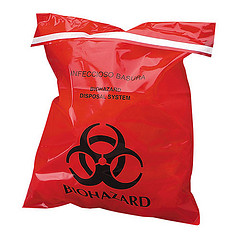« Prev Next »

This is a broad concept and we can pick at it from all possible configurations, but just consider the concept as can be reasonably applied to pluripotent cells. First, this would be happening in the not-too-distant future when iPSC and adult stem cell technologies have advanced enough as treatment options. Second of all, let's say the donor was thoroughly briefed on the medical procedure and patient's rights, and has given consent. Third, let's also assume that any treatments derived from such cells will require some tinkering in a lab before they reach patients. How much manipulation can these cells undergo before they are no longer considered "natural" or belonging to an individual? Do the researchers/investors/companies who developed such therapies simply own the process or the cell products too? What if the original donor wants a cut to help pay the mortgage? Does this person still own the rights to those products, or owed a portion of the royalties, or are those products modified too much to still belong to that individual?
Well, judging from past legal rulings (in the US anyway), things don't seem to favor the donor. While issues regarding informed consent and patient rights have advanced, the issue of ownership still favors universities and corporations. The landmark 1980 decision Diamond v. Chakrabarty set the stage by ruling live, human-modified organisms can be patented. So, it may be safe to assume that manipulated cell products from a donor probably don't belong to that person anymore. But what about harvested cells that weren't modified by humans? Well, the Moore v. Regents of the University of California decision in 1990 essentially ruled that cells or tissues removed from the body during the course of medical treatment is considered as waste. So, just like anything else you discard, it no longer belongs to you and it's fair play for others to mess with it. Therefore, researchers can freely use tissues obtained during medical procedures that would otherwise head for the incinerator, and may profit from them. It is now common practice to incorporate this legal sentiment into standard patient consent forms. By signing these forms, patients essentially acknowledge that anything removed from their bodies as part of a medical procedure is waste and they have forsaken all ownership to it.
It's easy to see why people are becoming ever more cynical with the "medical-industrial complex"1. With the rush to patent and to commercialize human biology, the distinction between which parts of ourselves each of us owns is becoming murkier. The visceral aversion some people experience towards stem cell technology is an extension of that unease. When our genome, our parasites, and our biological futures can be sold off piece-by-piece, such reservations are justified. However, this level of distrust will undoubtedly hinder any future advances and is unsustainable.
It is equally obvious that transparency is paramount to retain support for future therapeutic developments, but implementing it is challenging because trust is lacking on both sides. Companies generally want the freedom to make a profit without everyone suing them for a cut. The average person doesn't want a company to profit from a piece of themselves without some compensation. Is there any middle ground for compromise? I think not. There are too many factors that can shift the middle ground. I think, in the end, each person will have to decide for themselves if they want to donate their medical waste to science. That decision will highly personal, and would hopefully be a conscious choice. If you don't want to, at least talk to whoever's in charge and find out what your options are. Research institutes and companies will have to make do with whatever human scraps that may come their way, like they have always done, and as long as the scraps keep coming the research will go on. In the end, there may be no winners and we can only hope to lose for something greater than ourselves.
Photo credit: by SurvivalCentre (via Flickr)
- Obasogie, OK. "Life, Monetized." The American Prospect November 28, 2011. (http://prospect.org/article/life-monetized)
- Zimmer, C. "Our Bodies, Ourselves." The New York Times December 3, 2011 ( http://www.nytimes.com/2011/12/04/opinion/sunday/our-microbiomes-ourselves.html?_r=3)






















